What is Dental Hygiene
For Tulsa Dental Center Patients
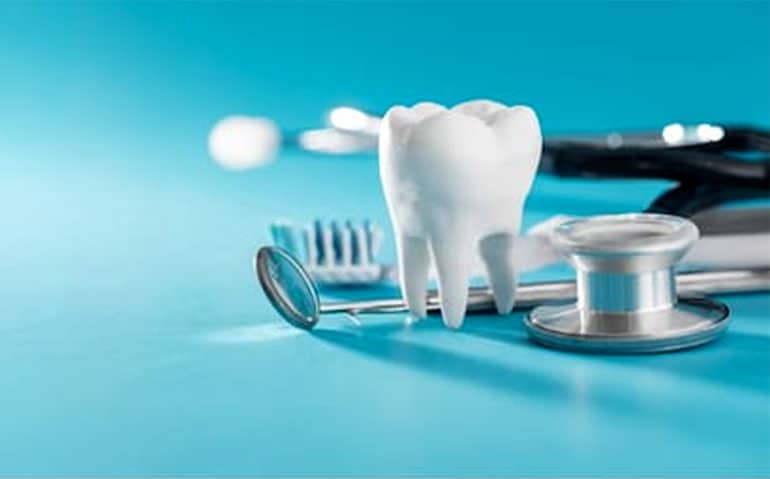
Benjamin Franklin is credited with saying, “An ounce of prevention is worth a pound of cure.” Dental hygiene may prevent disease in and protect the health of not only our teeth, but also our body.
WHAT IS DENTAL HYGIENE?
Dental hygiene is a term that refers to the practice of keeping the mouth, teeth, and gums clean and healthy. This includes brushing, flossing, using mouthwash and maintaining regular dental cleanings.
WHAT IS THE HISTORY OF DENTAL HYGIENE?
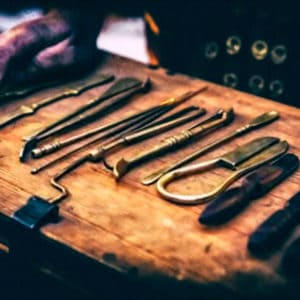 Dental hygiene was developed in the early 1900s, by a dentist named Alfred Fones, who trained his cousin as the first dental hygienist.
Dental hygiene was developed in the early 1900s, by a dentist named Alfred Fones, who trained his cousin as the first dental hygienist.
Her initial training happened several years before the first official dental hygiene program was established in America.
Initially, dental hygienists worked in a school setting, helping children understand the importance of dental hygiene. Approximately 45 years after Dr. Fones began training dental hygienists, all fifty states had licensed dental hygienists.
Technology has advanced dental hygiene. The 1940s/50s brought advancements including the handheld picks used to remove debris during teeth cleaning, fully reclining dental chairs, and ultrasonic scalers for cleaning teeth.
The 1950s/60s and the Civil Rights Act brought new language into the American Dental Hygienists Association (ADHA), opening admissions to the dental hygienist programs to all races.
The word “female” was also deleted from the ADHA Constitution during that time, and the first male dental hygienist graduated in 1965. In the 1980s, the ultrasonic scaler was upgraded.
This decade also brought about the implementation of unsupervised dental hygiene (a dental hygienist cleaning teeth without the presence of a dentist). In the 1990s, dental hygienists in some states were allowed to administer local anesthesia.
WHY IS DENTAL HYGIENE IMPORTANT FOR THE HEALTH OF OUR TEETH, GUMS, MOUTH, AND BODY?
Good dental hygiene prevents the accumulation of plaque on the teeth. Plaque is a layer of bacteria and food that builds up on and adheres to teeth.
Layers of plaque generate little by little, and when not regularly removed, break down the protective surface of teeth.
Poor dental hygiene can lead to many problems, but some of the most common include tooth decay and periodontal disease.
Tooth decay is the break down of tooth enamel, the hard outer layer of the teeth. This can result in tooth sensitivity and dental cavities. Untreated, tooth decay can cause pain, infection, and tooth loss.
Periodontal disease is a common infection caused by bacteria under the gum tissue. These bacteria begin to destroy the gums and bone, and can result in loose teeth, difficult chewing, and the need for teeth extractions.
Some symptoms that may be experienced with periodontal disease include:
- bad breath
- red/swollen/tender/bleeding gums
- pain with chewing
- loose and/or sensitive teeth
- receding gums
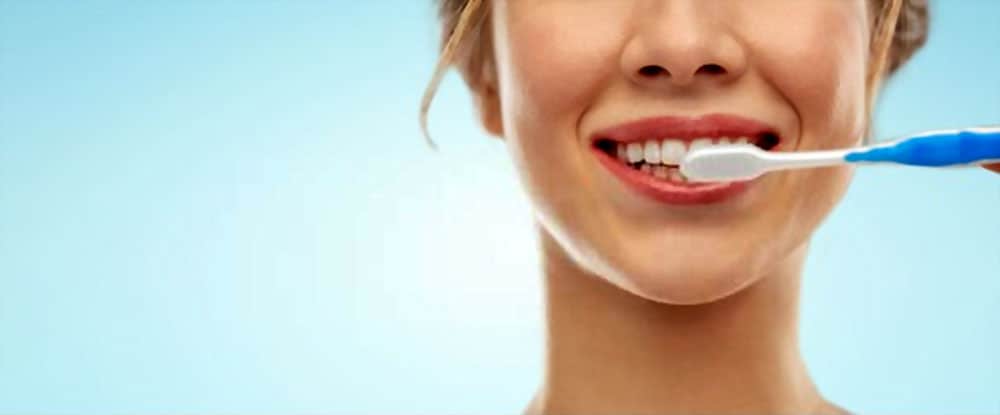
Poor oral health can lead to more than bad breath and diseased teeth and gums. Poor oral health can cause inflammation within the body, which can present in a host of ways.
There are potential links to dental health and the following:
Heart health:
Dental hygiene habits may impact the risk of cardiovascular problems.
A study in the European Journal of Preventive Cardiology found brushing teeth frequently to be associated with lower risks of atrial fibrillation (AFIB, irregular heartbeat) and heart failure, either of which could be dangerous to health.
The study found that brushing teeth three or more times per day was linked to a 10% lower risk of Afib and a 12% lower risk of heart failure.
Additionally, past studies have shown that poor dental hygiene can lead to bacteria finding its way to the bloodstream, which can trigger the body’s immune response. This can cause inflammation and other health problems, including the aforementioned heart issues.
Acne:
The bad bacteria from infected teeth or from gum disease can get onto your face, which can cause breakouts.
Certainly not every case of acne is a byproduct of poor dental hygiene, but if breakouts occur primarily on the lower cheeks, the chin, or around the lips, dental health could be at play.
A way to help reduce the risk of blemishes caused by dental bacteria is to wash your face after you brush your teeth. This will ensure that any pimple causing particles left on your face after brushing are washed away.
Fertility:
Dental health may have an impact on several aspects of fertility, including:
- How long it takes a woman to conceive— In a small study done in Australia, researchers analyzed a group of 3,737 non-Caucasian pregnant women who had all planned their pregnancies, and conceived without any fertility treatments.
In this group, the women with periodontal disease became pregnant after an average of 7.1 months trying to conceive. Women without periodontal disease became pregnant after an average of 5 months trying to conceive.
Ethnicity is noted because these significant results were not found in Caucasian women, though an increase in conception time was also noted for the Caucasian women.
Ethnicity (as well as other genetic factors) are known risk factors for periodontal disease, so this may be the reason for the observed difference amongst ethnicities.
- Poor semen and sperm health– A low sperm count, poor motility (how sperm swim), morphology (shape of sperm), as well as bacterial infection in semen, have all been found to be associated with dental or oral health issues.
Cavities, gum disease, and tooth infections have high levels of bacteria present in the mouth, which can lead to increased levels of bacteria in the body.
Some research has indicated that treating cavities and infections has led to a reduction or elimination of bacteriospermia (evidence of infection in semen). Additionally, when the body is fighting tooth decay, the immune system may go into overdrive.
This response may cause the entire body to have an increase in inflammation, which can cause the immune system to attack healthy cells, including developing sperm cells.
It is important to note that more research is needed in the area of dental health and fertility before any definite conclusions can be made. It can not be said for certain that periodontal disease causes fertility issues.
There may be an underlying health problem contributing to both fertility issues and periodontal disease.
WHAT ARE SOME DENTAL HYGIENE TIPS?
Teeth should be brushed properly.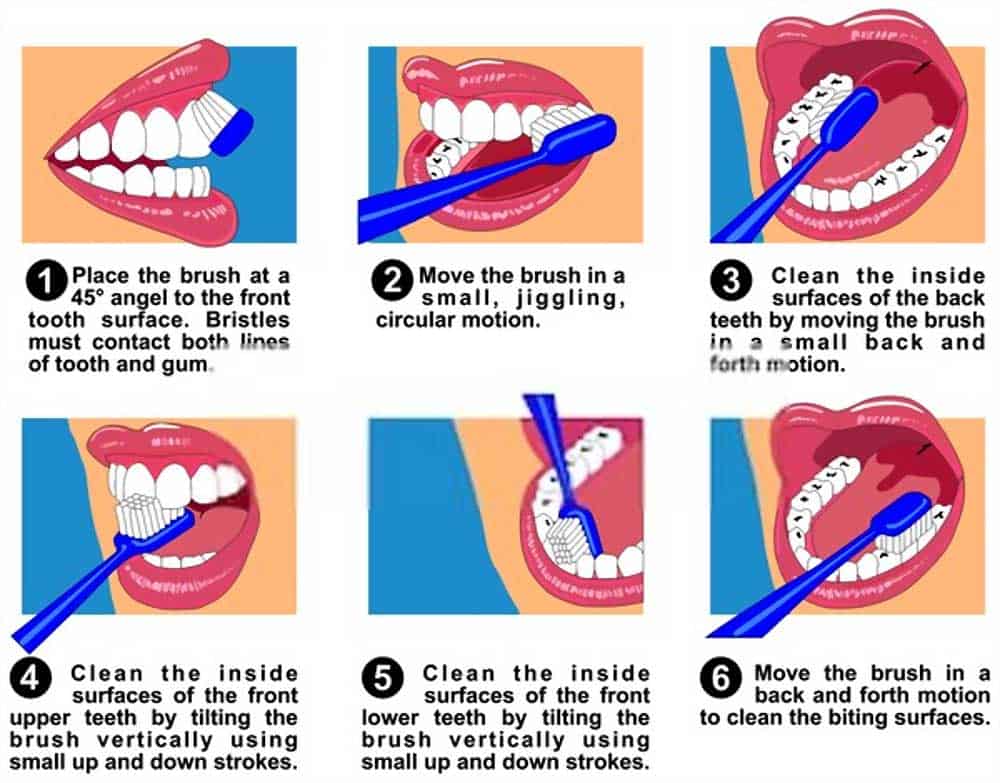
- If using a manual toothbrush, soft bristles are a gentler choice for teeth and gums.
- Begin with toothbrush bristles positioned at a 45-degree angle near the gumline.
- Brush using a back and forth and up and down motion, gently, and in contact with both the teeth and the gums.
- Do this for both the outside and inside surfaces of the teeth.
- The tongue and the roof of the mouth should also be brushed, to help remove bacteria that could contribute to bad breath.
If using an electric toothbrush, again, set it at a 45-degree angle against the gum line. Gently pull the brush along the gum line; the vibrations of the toothbrush will clean the area.
Brushing should be done at least twice a day, for 2-3 minutes.
If unable to brush after a meal, rinsing the mouth with water can minimize the amount of food particles left behind that could feed bacteria in the mouth.
Flossing is also important.
- Flossing removes food particles from the mouth, especially in hard to reach places between the teeth and in the gum line.
- Toothbrush bristles and mouthwash can not reach deep between the teeth to remove these substances.
- Flossing should be done at least once a day.
Consider mouthwash.
- Mouthwash can be helpful if the right ingredients are included.
- Listerine or chlorine dioxide are helpful ingredients because they manage bacteria in the mouth, which can help maintain healthy breath and strong teeth.
- Mouthwash alone isn’t enough, but combined with brushing and flossing, mouthwash can be a positive addition to a dental hygiene regimen.
Reduce or eliminate intake of certain foods/drinks.
- Soda, alcohol, and coffee should be limited due to high levels of phosphorus, which can deplete calcium in the body.
- This can lead to dental problems such as tooth decay and gum disease.
- Additionally, additives such as food dyes or corn syrup can cause tooth discoloration.
Tobacco should also be avoided, as it increases the risk of oral cancer and other periodontal complications.
Many smokers choose coffee or candy to cover the smell of smoky breath– but too much coffee or candy isn’t good for the teeth, making tobacco use a two-fold problem for teeth.
See your dentist.
- Dentist appointments should be at least twice a year.
- These appointments should include a full dental hygiene treatment/cleaning.
- Sometimes x-rays are also performed at these appointments, to help detect any underlying problems and to monitor the current state of the teeth, in an effort to prevent future dental treatments from being necessary.
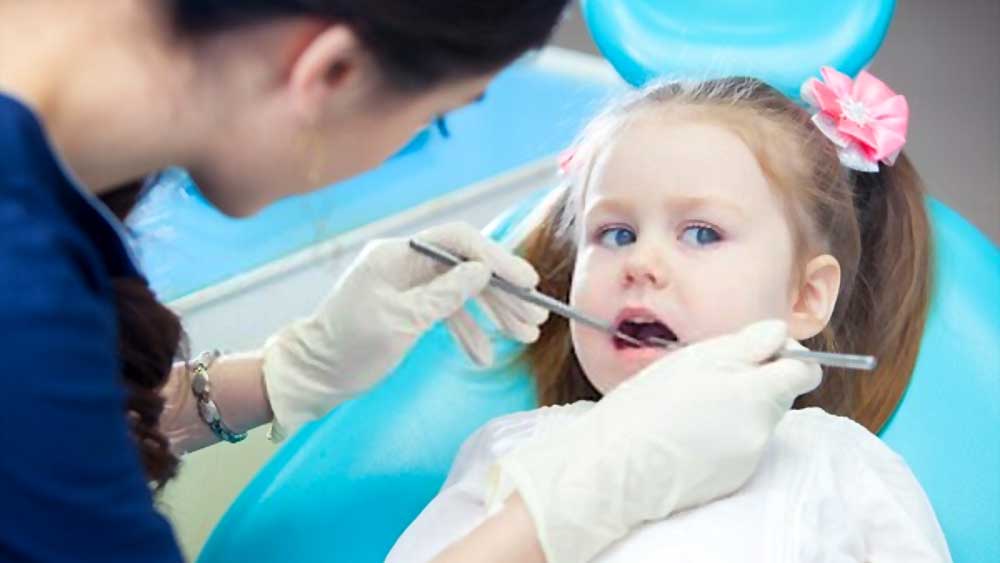 IS DENTAL HYGIENE ANY DIFFERENT WHEN DEALING WITH:
IS DENTAL HYGIENE ANY DIFFERENT WHEN DEALING WITH:
BABIES/KIDS?
Baby teeth begin to break through the gums around 6 months of age, but dental hygiene is important before that, because healthy gums are important.
- After the baby’s feeding, consider wiping her gums with a washcloth. This will help remove bacteria that can contribute to tooth decay.
- Once teeth have begun to erupt, brush twice a day with a tiny bit of toothpaste, using a soft bristle toothbrush.
- Babies should have their first dentist appointment around their first birthday.
- When baby teeth start to erupt, consider contacting your dentist to see about setting up an appointment for your baby.
- Children have all of their primary (baby) teeth by around age 3.
- Children should be using a pea-sized amount of toothpaste and brushing for at least two minutes twice a day.
Flossing is important for kids, and they should begin flossing as soon as the teeth touch.
Teaching them to floss sooner than that, however, instills a good habit.
Kids should pay careful attention to cleaning their back teeth. Just like adults, kids should see their dentist every six months.
Older children and preteens need to be responsible to take care of their teeth well, especially because dental hygiene isn’t always a priority to this age group.
By age 13, kids have a mouth full of permanent teeth, and keeping their teeth and gums healthy is essential.
Remind your child/preteen to brush twice a day for a full two minutes and floss daily.
This is a good age to consider an electric toothbrush.
BRACES?
 Braces require frequent brushing with a soft bristle or electric brush.
Braces require frequent brushing with a soft bristle or electric brush.
Ideally, the teeth and gums should be brushed 4-5 times a day (upon waking, after each meal, and before going to bed) for several minutes each time.
Flossing is still important with braces, but does require a small flexible tool called a floss threader, which allows dental floss to be threaded up under the archwires of the braces.
Once the floss is threaded under the braces, flossing is done as usual.
PREGNANCY?
Dental hygiene practices don’t need to change during pregnancy, but women should be
aware that gingivitis, plaque buildup, and erosion of tooth material can be common in pregnancy due to all the changes the body is going through.
With pregnancy gingivitis (common during the first trimester), an expectant mother could find her gums bleeding, swollen, red, and tender.
Plaque buildup is common in pregnancy not because pregnancy causes plaque but because hormonal changes in the body can affect the body’s ability to fight off plaque.
Expectant mothers suffering from regular or intense morning sickness may experience erosion of tooth material, due to the increased amount of acid in the mouth.
To help neutralize that acid, rinse with a teaspoon of baking soda in water before brushing the teeth. Pregnancy is a time to continue to see the dentist at regular 6-month intervals, more often if necessary.
Make sure to tell your dentist if you are pregnant, so pregnancy safe adjustments to treatments can be made.
Dental hygiene is important at all ages, and critical to the long term health of the teeth and body. If you have questions or are due for a regular check up/cleaning, don’t hesitate to contact your dentist today.
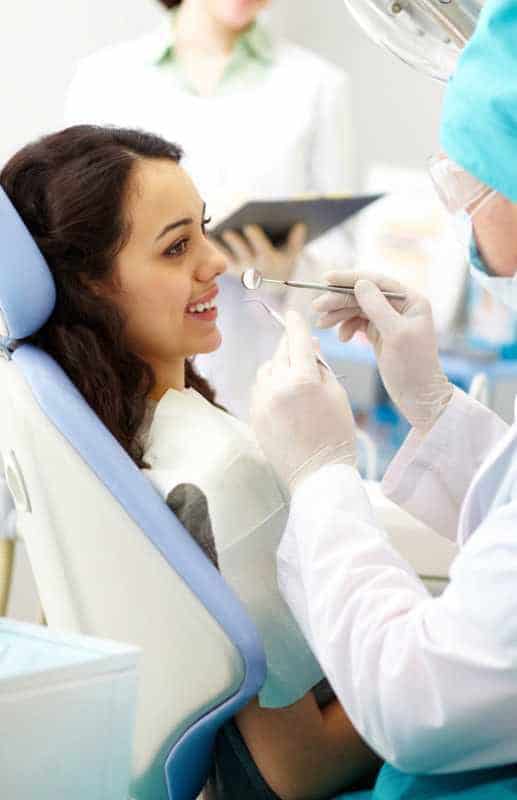
Have Questions About Dental Hygiene?
.
Phone
Office Location
4824 S Union Ave,
Tulsa, OK 74107
Contact Information
Payment Methods:

Business Hours
| Monday | 8AM - 5PM |
| Tuesday | 8AM - 5PM |
| Wednesday | 8AM - 5PM |
| Thursday | 8AM - 5PM |
| Friday | Closed |
| Saturday | Closed |
| Sunday | Closed |
